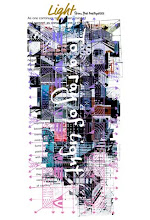Euthanasia and voluntary cessation of eating and drinking involve choosing to die with the aid of a physician, categorized into three types: active euthanasia, assisted suicide, and passive euthanasia (dignified death).
The conditions for active euthanasia are based on the clear will of the patient, unbearable pain, no prospect of recovery, and no alternative treatments, where the procedure involves medical professionals administering a lethal drug to the patient.
The conditions for assisted suicide are similar to active euthanasia, but the procedure involves the patient themselves taking a prescribed lethal drug.
The conditions for passive euthanasia (dignified death) are based on the individual's will, a terminal illness with no prospect of recovery, and the procedure involves stopping treatments that only prolong life, thereby hastening death.
As of 2024, among the approximately 196 countries in the world, the following countries have legalized euthanasia:
- Countries that recognize both active euthanasia and assisted suicide:
Spain, Portugal, Luxembourg, the Netherlands, Belgium, New Zealand, Colombia, several states in Australia, Canada.
- Countries that only recognize assisted suicide:
Switzerland, Austria, Italy, several states in the USA.
In Japan and South Korea, passive euthanasia based on the patient's own wishes is permissible.
Euthanasia and actions leading to one's own death are related to the religion of the country and are generally prohibited. Most sects of Christianity and Islam oppose such acts, considering suicide and murder as grave sins leading to hell, not heaven. Judaism also prohibits euthanasia and suicide.
In Buddhism and Hinduism, intentionally ending one's life is seen as generating bad karma. This affects future reincarnations adversely and perpetuates suffering. Physicians who assist in euthanasia are also seen as engaging in risky actions that generate bad karma.
These five religions constitute about 78% of the world's population. There are variations within each religion and among individuals, so not everyone opposes these practices.
Although the founder of Buddhism, Buddha, did not endorse suicide, he did not condemn it under three conditions: if the individual is a monk, they are suffering from severe pain with no alternative relief, and they have achieved enlightenment with no worldly duties remaining. Other perspectives in Buddhism suggest that dying for a noble cause or to aid others is considered virtuous.
Euthanasia is influenced by religious beliefs, leading to divided opinions across different countries. However, there are also non-religious individuals globally. According to surveys, of the world's approximately 7.9 billion people in 2022, about 16% or 1.264 billion are non-religious. The countries with the highest percentages of non-religious people are China (52%), Japan (62%), North Korea (71%), the Czech Republic (76%), and Estonia (60%). The averages per continent are approximately 24%–36% in Oceania, 18%–76% in Europe, 21% in Asia, 23% in North America, and 11% in Africa. The wide range in Europe is due to the significant variations between countries like the Czech Republic and Estonia and those with lower rates.
Traditional prohibitions against choosing death aside, many people witnessing their loved ones suffering from incurable, intense pain, completely bedridden and dependent on others for basic needs, may wish to ease their suffering if the individual desires death.
If euthanasia is not permitted, the patient continues to live in agony. If allowed, it provides hope and can lighten the psychological burden, encouraging people to make the most of their remaining time.
However, concerns arise that legalizing euthanasia could lead to its misuse, especially under societal pressures, potentially affecting the elderly, low-income individuals, or those without relatives. To prevent misuse, stringent criteria for active euthanasia and assisted suicide are necessary, involving approval from multiple doctors. Decisions should be made after thorough discussions between patients and families to prevent future regrets.
Many seeking euthanasia often feel hopeless, a state arising from the presence of the ego. In times of despair and suffering, the desire to be freed from suffering strengthens, prompting some to strive to overcome their ego with no-mind. Yet, not all patients can engage actively in this process due to their pain.
Another method to hasten death is Voluntary Stopping of Eating and Drinking (VSED), where individuals choose to stop eating to face death. In the Netherlands, approximately 2,500 people died from VSED in one year. In Japan, about 30% of palliative care doctors have encountered patients who chose to hasten their death through VSED. This process usually takes about a week after stopping hydration, with proper medical support allowing a peaceful death.
In Jainism, a similar practice known as Sallekhana involves gradually reducing food intake until fasting leads to death. This is permitted under specific circumstances, such as terminal illness, lack of food due to famine, or when physical functions are lost due to old age or disease. This practice, overseen by monks, is distinguished from impulsive acts like suicide and is permitted when one has fulfilled their life's purposes or when their body no longer allows them to pursue their goals.
In Prout Village, while the internal goal of overcoming the ego is emphasized, options should remain available for those meeting certain conditions, such as enduring incurable pain until death. Thus, Prout Village plans to designate certified physicians for euthanasia, conducted under restricted conditions and involving only consenting individuals. Whether proactive euthanasia, assisted suicide, passive euthanasia, or VSED can be offered is subject to discussion. The quality of life versus the length, the relevance of life-sustaining treatments for patients with no hope of recovery, and the perspectives of the patients, their families, and their religions must all be considered. Hence, each individual must make their choices responsibly.







0 コメント